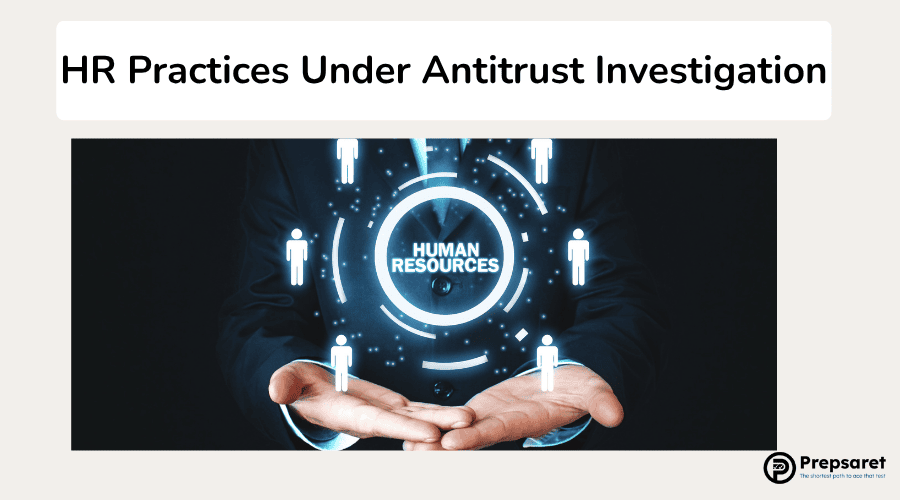Highlights:
- The European Commission has imposed a €329 million fine in its first-ever no-poach labor market case.
- The penalty targets both a minority shareholder and its competing investment business, setting a precedent in EU antitrust enforcement.
- The case underscores the growing global crackdown on anti-competitive HR practices such as no-poach and wage-fixing agreements.
- Companies must proactively manage information flows and implement compliance safeguards, especially in M&A and joint venture settings.
- Regulators are increasingly using advanced tools and whistleblower systems to detect violations, raising the need for robust legal readiness.
In a significant step toward regulating labor market competition, the European Commission has levied a €329 million fine—its first in a no-poach case and the first penalty for anti-competitive conduct involving a minority stake in a competitor.
The decision marks a turning point in EU antitrust enforcement, echoing a trend already seen in the United States and other jurisdictions.
Details of the Case
The fine stems from an in-depth investigation into collusive practices in the food delivery sector. Initiated after tips from a national authority and whistleblower reports, the Commission uncovered a no-poach agreement between two companies—one being a minority shareholder in the other.
According to the Commission’s findings, this structural relationship allowed both parties to share sensitive commercial information and align strategies, reducing competition in both labor and geographic markets.
“This is the first time we have sanctioned anti-competitive behavior involving a minority shareholding in a competitor,” the Commission noted. While owning a stake in a rival is legal, the exchange of sensitive data—like pricing, employee compensation, and strategy—crossed competitive boundaries.
Check out: How to Verify SHRM Certification
Wider Implications for Employers
The Commission’s intervention underscores a global shift in how labor market practices are scrutinized. No-poach, wage-fixing, and non-solicitation agreements are now high-risk behaviors attracting regulatory attention.
Employers in sectors with specialized labor pools—such as tech, finance, and healthcare—are particularly vulnerable.
Companies are being urged to implement strong internal compliance frameworks. These include training for HR and executive teams, legal review of talent acquisition strategies, and protocols to limit information exchange in corporate partnerships.
Compliance and Preparedness
Experts warn that minority investors can still be considered competitors under antitrust rules. Legal teams should ensure clean team arrangements and data ring-fencing in mergers, acquisitions, or joint ventures.
As authorities increasingly rely on digital tools and whistleblower systems, firms must also prepare for potential “dawn raids” by enforcement agencies.
According to analysts, this case could prompt other EU regulators to follow suit, signaling a new era in labor market enforcement. Employers are advised to stay vigilant and adopt preventative measures to avoid falling afoul of evolving antitrust expectations.
Looking to Advance Your Career?
Boost your professional journey with Prepsaret! Whether you’re pursuing PMP, CompTIA, or HR certifications, Prepsaret is your go-to study companion.
Unlock top-quality resources, practice exams, and expert support designed to help you succeed on test day and move your career to the next level!

